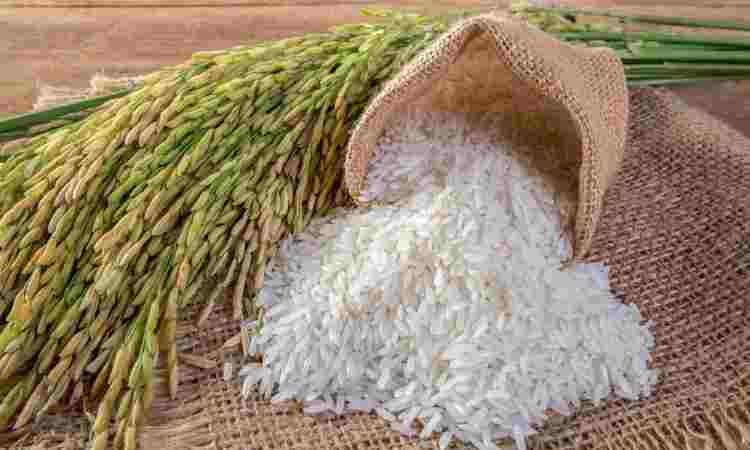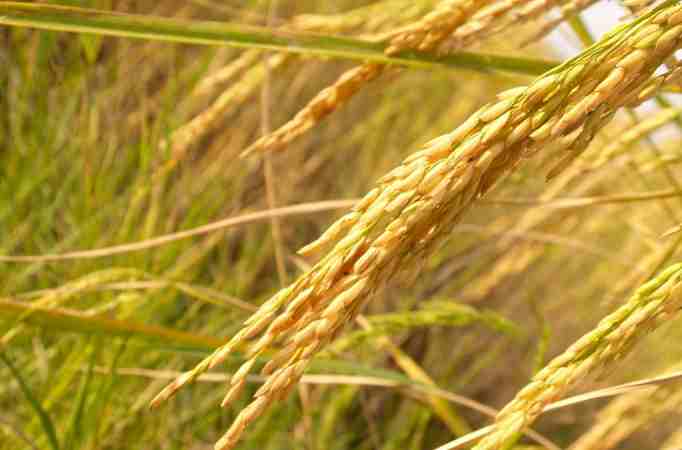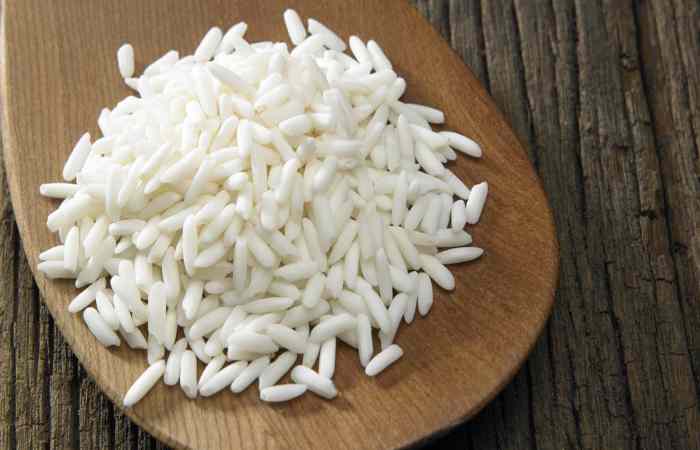Is Rice Safe for a Gluten-Free Diet?

Hello, and welcome to our delightful article about whether rice is gluten free, a question that has crossed the minds of many people seeking a gluten-free lifestyle or simply curious about their favorite grain.

Here, we will explore the gluten-free nature of different rice varieties, like is brown rice gluten free, is white rice gluten free, and is jasmine rice gluten free. With unique writing style, we hope to clear the confusion and help you make informed decisions about your diet.
Is Rice Gluten Free?
The answer to the burning question, “is rice gluten free?” is a resounding yes!
Rice is a naturally gluten-free grain, making it an excellent choice for those with celiac disease, gluten sensitivity, or anyone following a gluten-free diet. As Mahatma Gandhi once said, “There is no sincerer love than the love of food,” and rice is a food that has united cultures and inspired dishes all around the world.
Now let’s dive into some of the popular rice varieties and their gluten-free status:
Is Brown Rice Gluten Free?
Absolutely! Brown rice is a whole grain containing the outer bran layer, germ, and endosperm. This makes it richer in nutrients and fiber than its refined counterpart, white rice. It’s a fantastic gluten-free option for those who prefer a more robust, nutty flavor.
Is White Rice Gluten Free?
White rice is indeed gluten-free. It’s simply brown rice that has been stripped of its outer bran layer and germ, leaving only the starchy endosperm. While it may be less nutritious than brown rice, it still remains a popular choice for those following a gluten-free diet due to its versatility and mild taste.
Is Jasmine Rice Gluten Free?
Rejoice, jasmine rice lovers! Jasmine rice is also gluten-free. Originating in Thailand, this fragrant and flavorful rice is a staple in many Asian cuisines. Its delicate aroma and slightly sticky texture make it an excellent gluten-free alternative to regular white rice.

Does Basmati Rice Contain Gluten, and How Does It Relate to the Gluten-Free Status of Other Rice Varieties?
No, basmati rice does not contain gluten. Like other rice varieties, basmati rice is naturally gluten-free, making it a fantastic choice for individuals seeking to keep a gluten-free diet. When exploring the question of “is rice gluten-free,” it’s important to understand that all rice, including basmati, brown, white, and jasmine rice, is inherently free from gluten.
Rice and Potential Cross-Contamination
While rice is innately gluten-free, it may come into contact with wheat, barley, and rye during the cultivation, harvesting, and production stages. To stay on the safe side, opt for rice that is labeled or certified gluten-free. Steer clear of purchasing rice from bulk bins at supermarkets, as cross-contamination can easily happen if other customers use the same scoop for both gluten-free and gluten-containing grains.
When enjoying rice at a restaurant, ensure no added ingredients could compromise the gluten-free status of the rice. Inquire if the rice can be prepared in a separate, clean pan to prevent cross-contamination during the cooking process. Find more tips for dining out here.

Celiac Disease Symptoms Following Rice Consumption
If you experience symptoms after eating rice, inspect the packaging or review the preparation process. Were any gluten-containing ingredients added? Could cross-contamination have taken place? Addressing these questions will help you sidestep gluten exposure in the future.
Why Might Some Rice Not Be Gluten-Free?
Occasionally, rice may not be gluten-free due to cross-contamination with gluten-containing grains like wheat, barley, or rye. This can happen when rice is grown, harvested, or processed in proximity to these grains or in shared facilities. Additionally, rice purchased from bulk bins at grocery stores may be susceptible to cross-contamination, making it potentially unsafe for those with gluten sensitivities.
Frequently Asked Questions:
Can I eat rice if I have celiac disease or gluten sensitivity?
Yes, rice is a naturally gluten-free grain and is safe to consume if you have celiac disease or gluten sensitivity. However, always ensure that the rice you purchase is labeled gluten-free, as cross-contamination may occur during processing or packaging.
Are all rice products gluten-free?
While rice is naturally gluten-free, not all rice products are guaranteed to be gluten-free. Some products may contain additives or be processed in facilities that also handle gluten-containing grains. Always check labels and look for certified gluten-free products to ensure their safety.
What Precautions Should I Take to Ensure It’s Safe for My Gluten-Free Diet?
Rice is indeed gluten-free by nature, making it a staple for individuals with celiac disease, gluten sensitivity, or those who follow a gluten-free diet. However, it’s essential to take some precautions to ensure the rice you consume is safe and free from gluten contamination
- Buy labeled or certified gluten-free rice: To minimize the risk of cross-contamination, purchase rice that is explicitly labeled or certified gluten-free. This indicates that the product has undergone rigorous testing and adheres to gluten-free standards.
- Avoid bulk bins: When shopping for rice, steer clear of bulk bins at grocery stores. Cross-contamination can easily occur if other shoppers use the same scoop for both gluten-free and gluten-containing grains.
- Check for additional ingredients: Be cautious of rice products or dishes that contain added ingredients, such as sauces or flavorings. These additives might contain gluten, making the rice dish unsafe for those with gluten sensitivities.
- Prevent cross-contamination at home: Use separate utensils, cutting boards, and storage containers for your gluten-free rice to avoid contact with gluten-containing foods in your kitchen.
- Communicate your needs at restaurants: When dining out, inform the staff about your gluten-free requirements and ask about their practices to prevent cross-contamination. Request that your rice dish be prepared in a clean, separate pan, if possible.
Research rice varieties: Familiarize yourself with the characteristics of various rice varieties. Brown rice, white rice, and jasmine rice are all naturally gluten-free, but it’s essential to be aware of any potential risks for cross-contamination during processing, packaging, or preparation.
List of non-gluten rice alternatives for those looking to diversify their gluten-free diet:
- Quinoa: A nutritious and protein-rich pseudo-grain, quinoa is a versatile gluten-free alternative that can be used in salads, pilafs, or even as a base for breakfast bowls.
- Millet: This ancient grain is gluten-free and can be used in place of rice in many dishes. It has a mild flavor and can be prepared in a variety of ways, such as porridge or as a side dish.
- Buckwheat: Despite its name, buckwheat is not related to wheat and is completely gluten-free. It can be used in a variety of dishes, such as pancakes, soba noodles, or cooked as a side dish similar to rice.
- Amaranth: Another ancient grain, amaranth is gluten-free and can be cooked and served as a side dish, added to soups and stews, or used as a base for salads.
- Teff: A tiny, gluten-free grain native to Ethiopia, teff is most commonly used to make injera, a traditional Ethiopian flatbread. It can also be cooked as a porridge or used as a thickening agent in soups and stews.
- Sorghum: This gluten-free grain can be cooked and served as a side dish, ground into flour for baking, or even popped like popcorn for a tasty snack.
- Corn: Gluten-free and versatile, corn can be enjoyed on the cob, as a side dish, or ground into cornmeal for various recipes, such as polenta or cornbread.
By taking these precautions, you can enjoy the wide gluten-free rice varieties available and maintain a healthy, gluten-free diet without compromising on flavor or variety.
Conclusion
In conclusion, rice, in all its glorious forms, is a gluten-free grain that is versatile, delicious, and suitable for those with celiac disease or gluten sensitivity. The famous Chinese proverb says, “A meal without rice is like a beautiful woman with only one eye.” So, enjoy your rice dishes with confidence, knowing that you’re partaking in a gluten-free delight!




